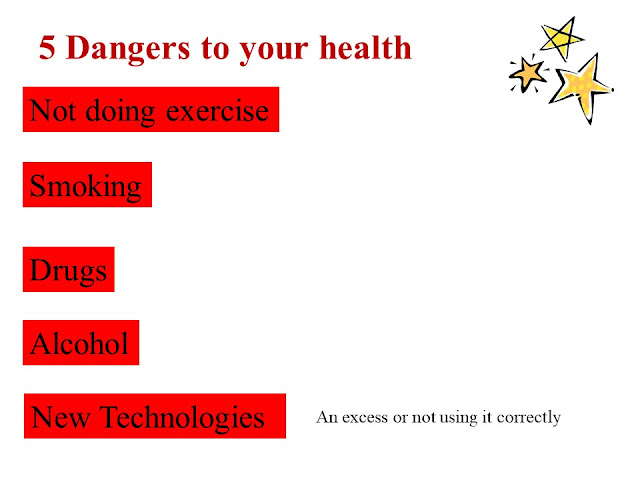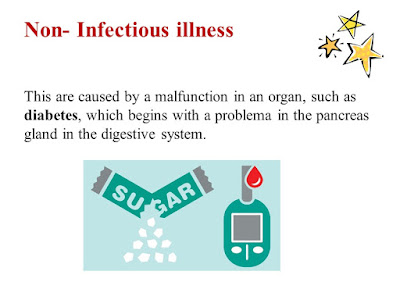All Summer in a Day
By Ray Bradbury (adapted by S.H.)
(My dear students: here is the story that we have been reading in our classes. I hope you enjoy it. Maybe it's a bit different than other stories that we have read, but it's always good to read different genres and styles. At the end you can find a short film. Do you like it?).
"Ready ?"
"Ready."
"Now ?"
"Yes."
"Do the scientists really know? Will it happen today?"
"Look; see it for yourself!"
The children pressed to each other trying to look out the window at the hidden sun.
It was raining. It had been raining for seven years; thousands upon thousands of days raining during all the day from dawn tu dusk, with the drum of water, with the fall of showers and also with the heavy storms that created huge waves that came over the islands.
A thousand forests had been crushed under the rain and grown up a thousand times to be crushed again. And this was the way life was forever on the planet Venus, and this was the schoolroom of the children of the rocket men and women who had come to a raining world to set up a civilization and live out their lives on Venus.
"It’s stopping, it’s stopping !"
"Yes!"
Margot stood apart from these children who could not remember a time when there wasn’t rain. They were all nine years old. Seven years ago, there had been a day when the sun came out for an hour and showed its face to the world, but they could not recall.
Sometimes, at night, she heard them speak aloud, while sleeping, and she knew they were dreaming and remembering gold or a yellow crayon or a coin large enough to buy the world with. She knew they thought they remembered the warmness of the sun, like a blushing in the face, in the body, in the arms and legs and on the hands. But then they always awoke to the sound of water, the endless shaking down of water upon the roof, the walk, the gardens, the forests, and their dreams were gone.
All day yesterday they had read in class about the sun. About how like a lemon it was, and how hot. And they had written small stories or poems about it:
I think the sun is a flower,That blooms for just one hour.
That was Margot’s poem, read in a quiet voice in the still classroom while the rain was falling outside.
"Aw, you didn’t write that!" protested one of the boys.
"I did," said Margot. "I did."
"William!" said the teacher.
But that was yesterday. Now the rain was decreasing, and the children were crushed in the great thick windows.
Where’s teacher ?"
"She’ll be back soon."
"She’d better hurry, we’ll miss it!"
They were very excited. Margot stood alone. She was a very fragile girl who looked as if she had been lost in the rain for years and the rain had washed out the blue from her eyes and the red from her mouth and the yellow from her hair. She was an old photograph dusted from an album, whitened away, and if she spoke at all her voice would be like a ghost. Now she stood, separate, staring at the rain and the loud wet world beyond the huge glass.
"What’re you looking at?" said William.
Margot said nothing.
"Speak when you’re spoken to."
He gave her a shove. But she did not move. They moved away from her. And this was because she would play no games with them in the echoing tunnels of the underground city where they all lived.
If they tagged her and ran, she stood blinking at them and did not follow the game. When the class sang songs about happiness her lips barely moved. Only when they sang about the sun, her lips moved as she watched the wet windows. And then, of course, the biggest crime of all was that she had come here only five years ago from Earth, and she could remember the sun and the way the sun was.
She could also remember the blue sky when she was four years old in Ohio. But all the other children, they had been on Venus all their lives, and they had been only two years old when last the sun came out and of course, with that age, they could not remember a thing.
But Margot remembered perfectly well how the sun was.
"It’s like a big yellow circle," she said once.
"No it’s not!" the children cried.
"It’s like a fire," she said, "in the stove."
"You’re lying, you don’t remember !" cried the children.
But she remembered and stood quietly apart from all of them and watched the windows. And once, a month ago, she had refused to shower in the school shower rooms, had holded her hands to her ears and over her head, screaming the water mustn’t touch her head. So after that, she was seen as different and they kept away from her.
There was talk that her father and mother were taking her back to Earth next year; because it seemed vital to her to go back home to Earth, even though it would mean the loss of thousands of dollars to her family. And so, the children hated her for all these reasons of big and little consequence. They hated her pale snow face, her waiting silence, her thinness, and her possible future.
"Get away!" The boy gave her another push. "What’re you waiting for?"
Then, for the first time, she turned and looked at him.
"Well, don’t wait around here!" cried the boy violently. "You won’t see anything!"
"Nothing’s happening today. Is it ?"
They all blinked at him and then, understanding, laughed and shook their heads.
"Nothing, nothing!"
"Oh, no!" Margot whispered, her eyes helpless. "This is the day, the scientists predicted, they say that the rain will stop and the sun will come out today for an hour…"
"That’s all a joke!" said William, and grabbed her roughly. "Hey, everyone, let’s put her in a closet before the teacher comes !"
"No!" said Margot, falling back.
They jumped around her, caught her up and pushed her into the closet. She complained, and then begged, and cried, but the kids slammed and locked the door. They stood looking at the door and saw it tremble from her beating and throwing herself against it. They heard her cries. Then, smiling, they turned and went out to the tunnel, just as the teacher arrived.
"Ready, children ?" She glanced at her watch.
"Yes!" said everyone.
"Are we all here?"
"Yes!"
The rain was stopping. They crowded around the huge door. Then the rain stopped.
The silence was so immense and unbelievable that you felt you had lost your hearing. The children put their hands to their ears. They stood apart.
The door opened and the smell of the silent, waiting world came in to them.
The sun came out.
It was the color of flaming bronze and it was very large. And the sky around it was a blazing blue color. And the jungle burned with sunlight as the children, released from their spell, rushed out, yelling into the springtime.
"Now, don’t go too far," called the teacher after them. "You’ve only two hours, you know. You wouldn’t want to get caught out!"
But they were running and turning their faces up to the sky and feeling the sun on their cheeks like a warm iron; they were taking off their jackets and letting the sun burn their arms.
"Oh, it’s better than the sun lamps, isn’t it?"
"Much, much better!"
They stopped running and stood in the great jungle that covered Venus, that grew and never stopped growing, tumultuously, even as you watched it. It was a nest of octopi, clustering up great arms of fleshlike weed, wavering, flowering in this brief spring. It was the color of rubber and ash, this jungle, from the many years without sun.
It was the color of stones and white cheeses and ink, and it was the color of the moon. The children lay out, laughing, on the jungle mattress, and heard it sigh and squeak under them resilient and alive. They ran among the trees, they slipped and fell, they pushed each other, they played hide-and- seek and tag, but most of all they squinted at the sun until the tears ran down their faces; they put their hands up to that yellowness and that amazing blueness and they breathed of the fresh air and listened to the silence which suspended them in a blessed sea of no sound and no motion. They looked at everything and savored everything. Then, wildly, like animals escaped from their caves, they ran and ran in shouting circles.
They ran for an hour and did not stop running.
And then - In the midst of their running one of the girls wailed.
Everyone stopped. The girl, standing in the open, held out her hand.
"Oh, look, look," she said, trembling. They came slowly to look at her opened palm. In the center of it, cupped and huge, was a single raindrop. She began to cry, looking at it. They glanced quietly at the sun.
"Oh. Oh."
A few cold drops fell on their noses and their cheeks and their mouths. The sun faded behind a stir of mist. A wind blew cold around them. They turned and started to walk back toward the underground house, their hands at their sides, their smiles vanishing away.
A boom of thunder surprised them and like leaves before a new hurricane, they tumbled upon each other and ran. Lightning struck ten miles away, five miles away, a mile, a half mile. The sky darkened into midnight in a flash.
They stood in the doorway of the underground for a moment until it was raining hard. Then they closed the door and heard the gigantic sound of the rain falling in tons and avalanches, everywhere and forever.
"Will it be seven more years ?"
"Yes. Seven."
Then one of them gave a little cry.
"Margot!"
"What ?"
"She’s still in the closet where we locked her."
"Margot."
They stood as if someone had driven them, like so many stakes, into the floor. They looked at each other and then looked away. They glanced out at the world that was raining now and raining and raining steadily. They could not meet each other’s glances. Their faces were solemn and pale.
They looked at their hands and feet, their faces down.
"Margot."
One of the girls said, "Well… ?"
No one moved.
"Go on," whispered the girl.
They walked slowly down the hall in the sound of cold rain. They turned through the doorway to the room in the sound of the storm and thunder, lightning on their faces, blue and terrible. They walked over to the closet door slowly and stood by it.
Behind the closet door was only silence. They unlocked the door. Ashamed, they let Margot out of the closet, standing frozen, embarrassed over what they have done and unable to "meet each other's glances."
The precious sun has come and gone, and because of their jealousy, Margot, who loved the sun the most, had missed it.
Watch video.




































